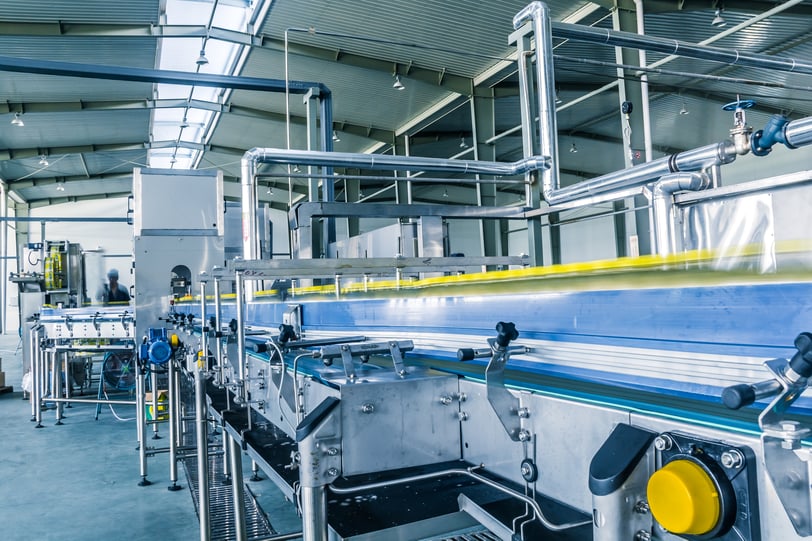In April 2022 the UK government will implement a plastic packaging tax designed to encourage manufacturers and importers to switch to consumables and transit packaging containing recycled materials. The tax will be at a rate of £200 per tonne for all plastic packaging with less than 30% recycled content.
To help you to better understand the current draft tax regulations and how they’re set to affect your business, here’s a rundown of the key facts.
What counts as packaging
For the purpose of the tax regulations, the government defines packaging as follows:
‘All products made of any material of any nature to be used for the containment, protection, handling, delivery and presentation of goods, from raw materials to processed goods, from the producer to the user or the consumer. Non-returnable items used for the same purposes shall also be considered to constitute packaging’ (source).
Non-chemically modified cellulose-based polymers will not be classed as plastics, meaning they’re out of the scope of the tax.
Critically, as of February 2021, long-term storage containers will be included within the scope of the tax, with no distinction between more commonly recognised packaging products and goods receptacles like container boxes, blurring the line between containers and packaging.
Efforts to create greater clarity and refinement of the regulations are currently being made, with guidance on the current terms expected in due course.
Taxable packaging
While amendments are likely moving forward, the list of taxable items currently includes the following:
- All UK-manufactured packaging
- All imported primary packaging (packaging that directly surrounds products)
- Packaging for dangerous goods, food grade items and alternative plastics
- Domestically sourced transit packaging (including that for export) and empty transit packaging for UK use (such as plastic pallets, shrink wrap and pallet strapping)
- Medical equipment packaging
- Any packaging that fails quality control or becomes damaged - if it’s made, it’ll still be taxable
Tax exemptions
The list of tax-exempt packaging is as follows:
- Medical contact packaging (packaging that comes in direct contact with a drug, such as blister packs)
- Imported plastic transit packing (material used to facilitate the importation of goods)
- Process waste (material output associated with production runs)
The tax regulations have been written such that further exemptions may be implemented in the future.

Who will be liable?
The levy is aimed at importers and manufacturers, though companies who import packaging material before exporting the same product will be required to initially foot the bill, before claiming credit back at the point of export.
For manufacturers, the government’s intention is to apply the tax to final stage converters (the final production stage before implementation). So, for companies producing polypropylene sheets, for example, the tax won’t apply. But companies who go on to buy such material to produce packaging (such as plastic mailing bags and document wallets), will be liable.
Currently, the legislation outlines that packaging will be taxable when it is first commercially exploited in the UK, meaning those who import goods will be accountable for the charge once the orders reach their warehouse.
Consignees acting on behalf of a third party who handles packaging (such as freighters serving manufacturers) will be exempt, while overseas businesses who supply direct to UK customers can expect the tax to apply--plus, they’ll need to appoint a representative to provide details of the exported goods.
Whilst current guidelines point to the potential for liability for all parties across the supply chain, further information covering the terms of liability for suppliers and manufacturers is expected later in the year.
How will the tax be applied?
It is expected that the cost is to be passed on from the taxable party to customers and outlined on a separate line in their invoice’s pricing breakdown, to give customers a clearer understanding of the newly implemented cost of not purchasing packaging containing the requisite ratio of recycled content to virgin plastic.
Thresholds for identifying accountable parties
Businesses handling under 10 tonnes of plastic packaging in a 12-month period will not need to register, but once the legislation comes into effect, if you’re likely to exceed the threshold within 30 days, you should register on the date you make that assumption.
Calculations for recycled plastic content can be made using the formula: mass of recycled content / mass of all plastic inputs * 100
Note: calculations must be based on individual production runs or a continuous production line, with uniform packaging weight, and it is currently unclear whether the mass balance will apply to imported empty packaging.
Submitting returns
Returns for all plastic packaging handling must be submitted online and on a quarterly basis, and businesses need to keep their registration details up to date and their customers informed of taxation via invoicing, such to avoid incurring further fees from government fines.
For more information, visit the HMRC website.
Looking to reduce your plastic packaging consumption? Allpack are on hand to provide expert consulting services and guide you through the transition to greater packing efficiency and high-performance, environmentally sustainable alternatives. Contact us